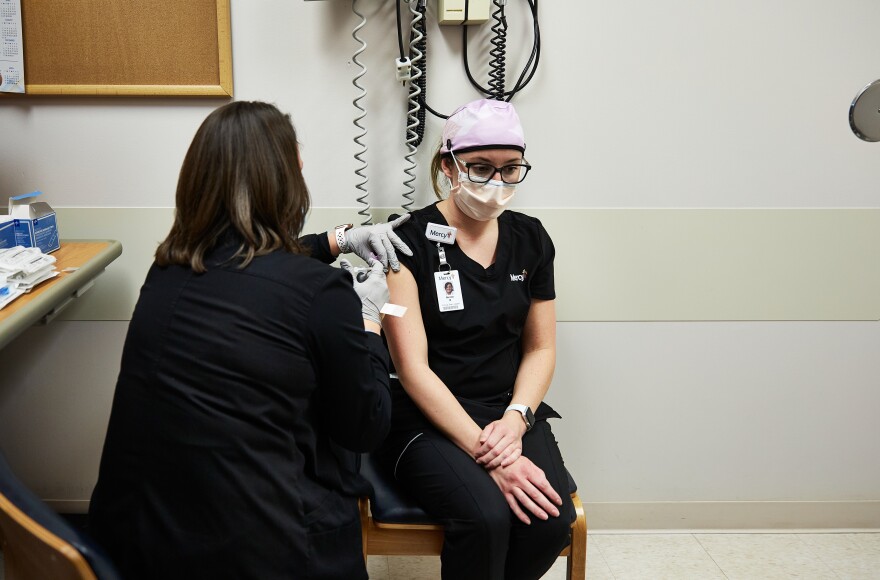Missouri has given the first dose of coronavirus vaccine to about 262,000 people, 4% of the state's 6 million residents, according to data from the Centers for Disease Control and Prevention.
That’s the lowest percentage of all 50 states, and at that pace, Missouri won’t fully vaccinate its population for years.
Infectious disease experts say the slow distribution of the vaccine could hinder the state's ability to protect people from the virus.
“It’s always a race against these pathogens to get to a point where we can protect as much of our population as we can,” said Dr. Rachel Presti, an infectious disease specialist at Washington University.
Health officials for months have said the only way to end the coronavirus pandemic is to mass-vaccinate the country into herd immunity, which occurs when a large portion of the community is protected by being exposed to the virus or by vaccination.
“We’re going to wind up with herd immunity one way or the other,” said Presti, who also works at Barnes-Jewish Hospital. “The faster we can get vaccines given to people, the less people get infected and the less people actually die from the coronavirus.”
Many states have been slow to roll out the vaccine. Alaska leads the nation in vaccination rates, with 11% of its population having received the vaccine. West Virginia has vaccinated 9% of its residents.
State health officials say the federal government is shipping small amounts of vaccine to Missouri. The state directs where federal shipments are sent but can’t increase the total number of doses it receives.
However, the amount of vaccine sent is based on population; every state is given the same proportion.
Missouri’s cash-strapped health departments weren’t prepared for such a large undertaking, said Tim Wiemken, an associate professor of infectious disease at St. Louis University.
“When you live in a place that doesn’t value public health so much, you end up in this situation,” he said. The public health departments, the local and the state, are so underfunded they can hardly function on just a day-to-day basis. … You end up with a workforce that just doesn’t have the resources they need.”
The slow vaccine rollout is especially worrisome because several emerging coronavirus variants have been identified around the world, Wiemken said. Slow vaccination efforts give the virus more time to spread and mutate.
While many of the dominant coronavirus variants still respond to the newly developed vaccines, if they continue to mutate they could eventually render immunizations and treatments less effective, he said.
“If we don’t have the broad swaths of the community immunized, it’s going to take hold, and we’re going to be right back to the beginning of 2020,” Wiemken said.
Dr. Randall Williams, director of the state Department of Health and Senior Services, will discuss the state’s slow vaccination rollout at a House committee hearing later this week.
Follow Sarah on Twitter: @petit_smudge




